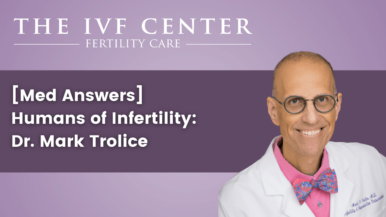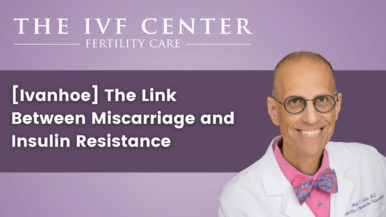What if you couldn’t trust the only person/place you trust with your infertility care? Impossible you say – after all, doctors take an oath to “do no harm.” Yet there are continued reports of malpractice in various fields of medicine, e.g. wrong side surgery, preventable complications from surgery, and physicians professing a proficiency in a specialty without adequate training. So, do infertility patients have any risk of being evaluated and treated by any doctor or clinic claiming they specialize in infertility? The answer, unfortunately, is a resounding YES. This blog will focus on empowering the infertility patient avoiding ineffective, costly possibly harmful treatment lacking medical evidence.
 For twenty years, I have committed to following the guidelines of practice by the American Society for Reproductive Medicine (ASRM) and maintain double board-certification in Reproductive Endocrinology & Infertility (REI). Does this enable me to be flawless in providing infertility care to my patients? Certainly not; but the purpose for presenting my credentials is to elucidate the criteria for infertility patients to choose their healthcare provider. Anything less than the above qualifications, risk substandard, expensive and risky care and delayed conception.
For twenty years, I have committed to following the guidelines of practice by the American Society for Reproductive Medicine (ASRM) and maintain double board-certification in Reproductive Endocrinology & Infertility (REI). Does this enable me to be flawless in providing infertility care to my patients? Certainly not; but the purpose for presenting my credentials is to elucidate the criteria for infertility patients to choose their healthcare provider. Anything less than the above qualifications, risk substandard, expensive and risky care and delayed conception.
From the American Board of Obstetrics and Gynecology website – “All certified obstetrician-gynecologists can treat patients with … (female disorders to include infertility); however, some physicians have this extra training that qualifies them to take a written and oral test to be certified in these areas.” Board-certification in REI demonstrates successful completion of rigorous testing for proficiency in the “care of women who have hormonal or infertility problems.”
Regarding infertility, once a woman determines she has a problem conceiving, there are studies to support a shorter time to pregnancy if she immediately establishes care with a REI than a general Ob/Gyn. The reasons involve efficient diagnostic testing and a wider more aggressive range of management options.
 Specifically …
Specifically …
Women under 35 years of age should seek out an REI after ONE year of unprotected intercourse with no other risk factors for infertility;
Women aged 35-39 should seek help following six months of an inability to conceive;
Women 40 years and older should engage a REI after three months of attempts at conception.
For a general Ob/Gyn and/or Family Physician to proclaim a specialty in infertility, he or she may risk delays in patient diagnosis and time to conception. Examples of ineffective practice patterns include:
- Excessive hormone testing
- Misinforming patients of inadequate progesterone levels
- Omitting evaluation of the fallopian tubes and sperm
- Offering fertility medication to ovulating patients without ultrasound monitoring and intrauterine insemination (IUI)
- Unnecessary laparoscopy
These are some of the more common mistakes made by health care providers with inadequate training in infertility.
While a comprehensive specialized clinic offers infertility patients extensive testing and treatment options available, the clinic is not removed from engaging in patient exploitation. To illustrate, many reports reveal “gifts” from pharmaceutical industry influencing physician prescribing patterns. Additionally, the age old adage still applies “to a hammer everything is a nail” whereby a surgeon is more likely to recommend surgery given their area of interest as well as receipt of higher reimbursement.
These conflicts of interest can also occur at the infertility clinic due to the physician owning the laboratory that performs blood testing, sperm analysis, IUI as well as in-vitro fertilization (IVF) with the potential of encouraging the clinic to recommend tests and procedures that may be redundant, premature, or completely unnecessary.
The only factor that stands in the way of a patient receiving appropriate care is simply integrity of the physician. Once a physician becomes influenced by monetary reward, the end can never justify the means.
We are Central Florida’s most successful IVF Program.
To learn more about our work, please schedule your consultation or join the conversation on Facebookand Twitter.






